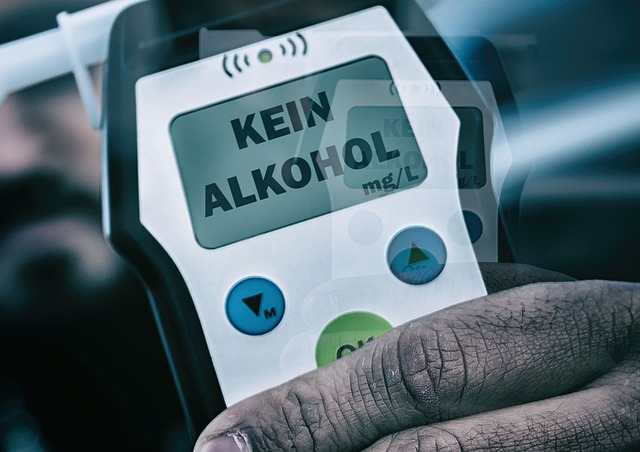Recidivism Reduction Strategies focus on understanding triggers like environment and mental health issues to design targeted interventions. These include education, job training, counseling, and social inclusion initiatives. Gaps in justice systems, from legislative ambiguities to procedural issues, must be identified and addressed through reforms and comprehensive rehabilitation. Evidence-based approaches like CBT and structured programming are effective, as is Restorative Justice, which emphasizes healing and reconciliation. Community engagement, providing tailored support and opportunities, strengthens these strategies and builds safer, more inclusive communities.
In the ongoing pursuit of effective recidivism reduction strategies, understanding and addressing loopholes in justice systems is paramount. This article explores crucial aspects of recidivism management, focusing on identifying triggers through pattern recognition and implementing evidence-based interventions. We delve into the limitations of current systems and propose transformative solutions like restorative justice. Furthermore, community engagement is highlighted as a key factor for long-term success in reducing recidivism rates, emphasizing holistic approaches to foster positive change.
- Understanding Recidivism Patterns and Triggers
- Identifying Loopholes in Current Justice Systems
- Evidence-Based Strategies for Intervention
- Restorative Justice: A New Paradigm Shift
- Community Engagement for Long-Term Success
Understanding Recidivism Patterns and Triggers

Understanding recidivism patterns and triggers is a critical step in developing effective recidivism reduction strategies. Recidivism, or the tendency for individuals to reoffend after being released from incarceration, often follows distinct patterns that can be identified through careful analysis of criminal behavior. By studying these patterns, policymakers, researchers, and practitioners can design targeted interventions that address the root causes of reoffending. Common triggers include exposure to similar environments, lack of access to supportive services, and unresolved mental health or substance abuse issues.
Recidivism reduction strategies should focus on breaking these cycles by providing individuals with alternative pathways to rehabilitation and reintegration. This includes accessible education and job training programs, mental health counseling, and support networks that can help ex-offenders adjust to life outside of prison. Additionally, community-based initiatives that foster social inclusion and positive role models can play a significant role in preventing recidivism. By implementing these strategies, communities can work towards a safer and more just society for all.
Identifying Loopholes in Current Justice Systems

Justice systems worldwide often present hidden gaps and loopholes that can undermine their effectiveness, especially in addressing recidivism. These systemic shortcomings can range from technicalities in legislation to procedural issues and disparities in enforcement. For instance, certain legal ambiguities might allow offenders to avoid harsher punishments or escape accountability altogether. Identifying these loopholes is a critical first step towards implementing effective recidivism reduction strategies.
By scrutinizing existing laws, policies, and practices, policymakers and legal experts can pinpoint areas where the system fails to deter crime or rehabilitate individuals effectively. This process involves a thorough examination of every stage of the criminal justice journey, from arrest to sentencing and beyond. Once identified, these loopholes can be addressed through legislative reforms, improved training for law enforcement and judicial officers, and the development of comprehensive strategies that focus on both punishment and rehabilitation.
Evidence-Based Strategies for Intervention

Evidence-based strategies are instrumental in closing gaps and reducing recidivism rates among individuals with a history of criminal behavior. One such strategy is cognitive-behavioral therapy (CBT), which focuses on identifying and modifying negative thought patterns and behaviors. By teaching individuals coping mechanisms, problem-solving skills, and emotional regulation, CBT equips them to handle stressors and triggers effectively, thus reducing the likelihood of reoffending.
Additionally, structured programming, including educational and vocational training, plays a significant role in recidivism reduction strategies. Providing individuals with meaningful activities and goals helps foster a sense of purpose and accomplishment. Research has shown that participation in such programs can lead to better outcomes, increased employment opportunities, and a lower risk of returning to criminal behavior, ultimately contributing to safer communities.
Restorative Justice: A New Paradigm Shift

Restorative Justice represents a transformative approach in criminal justice, shifting focus from punitive measures to healing and reconciliation. This paradigm shift aims to address the root causes of crime, thereby significantly reducing recidivism rates. By involving victims, offenders, and communities in the process, Restorative Justice fosters accountability and encourages genuine remorse.
Traditional punishment often fails to break cycles of violence or reoffending. In contrast, Restorative Justice empowers individuals to take responsibility for their actions while offering opportunities for redemption. This approach not only benefits offenders by providing them with support and skills for positive change but also strengthens communities by restoring trust and promoting a culture of forgiveness. Through these Recidivism Reduction Strategies, societies can create a more just and inclusive future.
Community Engagement for Long-Term Success

Community engagement is a powerful tool in closing gaps and fostering long-term success for recidivism reduction strategies. By involving and empowering local communities, individuals at risk can find support and opportunities that go beyond traditional legal systems. This collaborative approach recognizes that addressing root causes of criminal behavior requires collective action and shared responsibility.
Through community engagement, programs can be tailored to specific needs, increasing their effectiveness in preventing recidivism. It encourages the development of sustainable solutions, such as education initiatives, job training, and mentorship programs, which not only equip individuals with necessary skills but also build a sense of belonging and purpose within the community. This holistic strategy ultimately contributes to safer neighborhoods and a stronger social fabric.
By understanding recidivism patterns, identifying loopholes in current justice systems, and adopting evidence-based intervention strategies, we can significantly reduce recidivism rates. Restorative justice approaches and community engagement play pivotal roles in fostering long-term success by addressing the root causes of criminal behavior. Implementing these Recidivism Reduction Strategies ensures a more effective and humane justice system that benefits both individuals and society as a whole.






